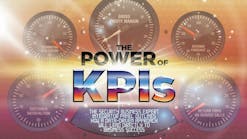Florida Teeters on Cusp of Allowing Slot Machine Operations
Source Miami Herald via NewsEdge Corporation
For the next four weeks, South Florida voters will be deluged with television and radio ads, mailers and billboards promising that slot machines will be a $500 million annual boon to education and a $20 million windfall for local government.
What voters won't hear is that these pledges are really a big bet by the parimutuel industry -- and its ability to deliver hinges on a skeptical Legislature and reluctant governor who have the power to make or break the promises.
"The $500 million thing was not a guarantee," Gov. Jeb Bush said Friday, referring to the revenue the industry says will go to education if Miami-Dade and Broward counties vote to authorize slot machines March 8. 'It was just stated, 'This is what's going to happen if you trust me -- if you vote for this.'...I'm not sure that's the case."
If voters allow South Florida's seven dog and horse racetracks and jai-alai frontons to offer slot machines, the Florida Legislature will have until July 1 to pass a bill setting up the regulations to implement Amendment 4, the measure voters approved in November that allows the two counties to hold the referendums on slots. The governor will have the power to veto whatever legislation lawmakers pass.
Bush has vowed to have an active hand in the legislation, and said Friday his approval will be contingent on several things: having safeguards for problem gamblers; having enough money to offset the cost of widening roads and paying for growth caused by the gaming facilities, and obtaining guarantees that the parimutuels won't sell out to someone who will bulldoze the tracks to build casinos.
THE AMENDMENT
The industry expected to face fierce opposition from the governor and much of the public. So it wrote the amendment to steer all proceeds from slots to an area dear to voters' hearts: education.
In an extraordinary agreement, inked before voters even decided to vote on the constitutional amendment authorizing the referendums, the parimutuel operators pledged to the Florida School Boards Association that all 67 counties would share 30 percent of the profits made from slot machines. Their promise: $500 million a year for education after three years, whether or not the state levies a tax at the 30 percent rate.
The parimutuels have also promised Miami-Dade and Broward counties to pay for the March 8 referendum and send as much as $10 million a year in cash to compensate for increased traffic, crime, congestion and problem gambling, among other things. They've signed similar agreements with cities such as Dania Beach, Hallandale Beach and Pompano Beach.
But, as the chairman of the House Business Regulation Committee said last week, while these promises may have been smart politics, they may be premature policy.
'Do we need to accept their numbers? The bottom line is `no,' " said Rep. Frank Attkisson, a Kissimmee Republican. "They're asking for us to take a percentage as they make a percentage. They didn't sell it to the voters like that. They said: You will get $400-$500 million."
Attkisson said he believes it is the Legislature's job to hold the industry accountable for making good on its pledges.
A PUBLIC POLICY ISSUE
Senate President Tom Lee, a Brandon Republican, said he believes the Legislature has an obligation to implement the constitutional amendment in a way "that reflects the expectations of the public" and the promise that $500 million will go to education.
But he is urging senators to "approach this from a public policy standpoint of what's the right thing to do for Florida."
House Speaker Allan Bense, a Panama City Republican, is also cautious about how the amendment will be made to work: "I'm not wild about gambling."
The Legislature's stance is no surprise to the industry. So the coalition of horse tracks, dog tracks and jai alai frontons hired Jim Horne, a former state senator and education commissioner for Bush, to be their chief cheerleader.
Horne, once an antitax crusader and chairman of the Senate Finance and Tax Committee, told the House Business Regulation Committee that his group is committed to working with legislators to find the right balance between holding the industry accountable to the state and earning enough money to keep its promises.
"We're going to pay the highest tax rate," he said. He warned that the tracks' competitors, the Indian gaming parlors, pay no tax and face no regulation. "You keep on going and tax us to death, we miss the opportunity for a revenue stream."
'OPTIMAL' REGULATIONS
Scott Fisher, managing director of the Innovation Group and the coalition's business consultant, said the optimal regulatory arrangement for the industry would include:
- Allowing each of the seven facilities to purchase its own machines.
- Taxing revenues at 30 percent, producing as much as $500 million a year for education.
- Contributing $300 million to local governments in the form of sales taxes and local distributions to offset the cost of traffic, law enforcement, local administration and problem gambling.
- Letting the industry set the payout and race purse amounts, with 42.5 percent of revenues returned to payouts and purses.
- Using remaining revenues for upgrades, marketing and development.
COMMUNITY EFFECT
Fisher said the average facility would have 3,000 machines and would need 12,000 visitors a day to break even. Smaller facilities would serve 10,000 people a day.
Casino experts say those projections would give Florida some of the largest slot machine halls in the nation.
For example, the Charleston Races in West Virginia, a "racino" that features slot machines and horse racing, has 3,500 slot machines, said Steve Bourie, a Fort Lauderdale resident and author of the American Casino Guide. The MGM Grand Hotel, the largest casino in Las Vegas, has 3,200 slot machines.
Fisher, the industry consultant, told the House committee that the stimulation of the struggling parimutuel industry will have a ripple effect on local communities.
He predicts that the seven facilities will spend $1.2 billion on the first phase of development -- building the gambling halls -- and will create at least 10,000 jobs.
INFLUENCE OF MONEY
Senate President Lee said that despite his warnings, the dollar signs will likely persuade most legislators to pass something this year.
"This is a classic case of a camel's nose under the tent," he said. Even gambling opponents are hesitant to object "to passage of this because they think casino gambling is coming to a theater near them someday soon -- if they just be quiet and let Jeb Bush ride off someday into the sunset."
With the governor and his threatened veto gone after his term ends in 2006, Lee said, "they can get a more gambling-friendly governor, who will enter into compacts with the Indians, who will allow for the proliferation of these slot machines and perhaps other forms of...gambling in Florida.
"That's the endgame."

